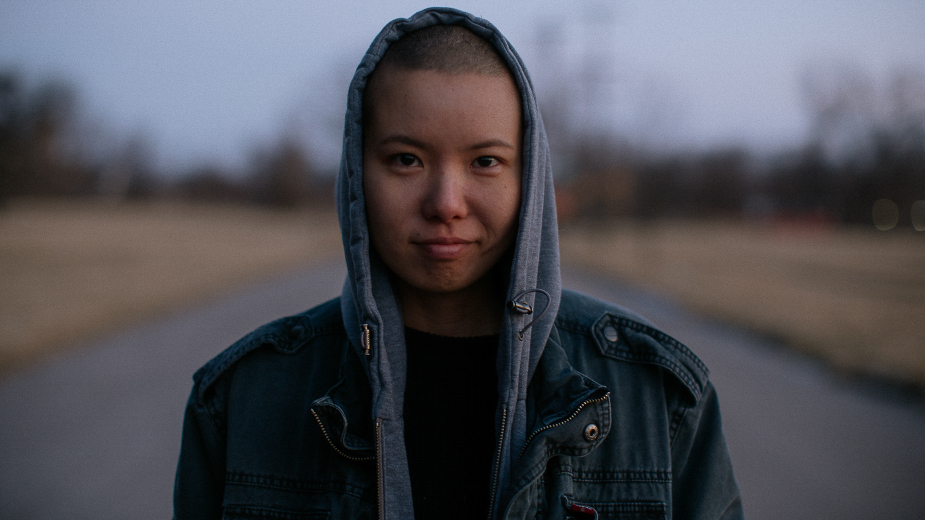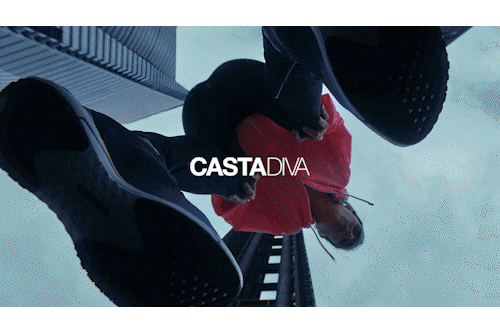
Uprising: How Na Forest Lim Uses Film as a Curation of Intimacy

As a neurodivergent, gender non-conforming artist who grew up in Korea - now working out of Detroit, Michigan - Na Forest Lim’s lived experiences are as one of a kind as their work. So, when looking to understand the journey of the people-loving, kendo-practising, community-oriented artist, where better to start than at the very beginning of their story?
Remarkably, Na’s attraction to filmmaking might be the least extraordinary thing about them. Like many others who now ply their trade in this industry, the Alfredo Films director’s proclivity for visual thinking made the notion of visual storytelling instantly appealing, and this manifested itself through Na’s love of graphic novels and manga. “My hobbies were watching animation and playing with my dog,” they say. “I was a bit slow when it came to traditional education, and as a result, I spent a lot of my time alone, reading and drawing manga. This really helped stretch my imagination and inspire that storytelling sense.”
It would not be long before the results of that stretching became apparent. Equipped with a small Sony camcorder, originally purchased to document friends, Na states that this opened a portal through which examination of the larger world was possible - a place where they could become an author through the lens of the camera.
This, combined with the decision to study advertising design and moving images at Konkuk University, created a perfect amalgamation of artistic passion and understanding of the marketing and agency world; inspiring Na’s move across the Pacific in 2014 and granting them a unique, compassionate and sensitive perspective which they apply to their work today. “I found a lot of similarities and also a lot of differences between South Korea, the US and Canada,” they add. “I love that people were quick to open up to me in the US and Canada, especially being an immigrant.”
Perspective wasn’t the only thing gained from this move, however. The decision to trade living in Korea for America would also serve as grounds for Na’s big break, as they were invited to direct an art film for the ‘Flower House Detroit’ project. “It was during the third weekend of October 2015, and I got to capture cutting edge florists from Michigan and across the country filling the walls and ceilings of an abandoned Detroit house with American-grown, fresh flowers and living plants for a weekend installation,” they recall. “The art film went viral and helped bring people together for the event - an estimated 3,000-plus visitors.”
And the benefits of this opportunity didn’t stop there. According to Na, a few members of GTB (Ford ’s agency) saw the work, and wanted similar videos with their stories, leading Na to not only get their foot in the door of North American directing, but to make the executive choice to call Detroit their home.
“[In Detroit], I have a beautiful community,” they note. “The goal of my artwork is sharing the community experience, narratives of healing, and to safely bring people together in real life in order to change unbalanced societal narratives and systemic issues. So, I support collective artists’ spaces and local nonprofit/cooperative organisations through my photography, and it’s here that I feel fortunate to be tight with my fellow artists.“
However, Na’s success does not equal ease of experience. As an autistic person, Na has a high sensitivity to energy and sensory stimuli including sound, temperature, light and texture. As such, developing creative ways to communicate with talent has proven imperative, but is something that they’re always ready to tackle in full measure. “I take time in every step of the storytelling process,” Na says. “Working with real people and real stories requires different kinds of efforts than fiction. We are all spontaneous, hyper-complex, transformative beings.”
There is no better representative of this statement than Na themself, who discovered the value of creative communication to overcome a lack of english-speaking experience upon first arriving in North America. Specifically, they edited pre-viz videos from stock footage to communicate their direction to key crew members, and in the process, found just how effective creating sets that allow for varying forms of communication can be. “It’s something I try to apply to my sets,” they add. “It’s important that we respect our differences in neurodiversity, belief systems, and lived experiences, because if we are on the same page, it makes the journey that much smoother.”
In fact, this opportunity to connect is one of Na’s favourite things about the job. Be it a crew member or the subject of the film, the ability to get to know other’s tales through the medium and opportunities surrounding visual storytelling is something the director truly finds exciting - no matter how painful the accompanying physical process is. This is an experience that Na vividly recalls when reflecting on their first professional project, a documentary of a kids camp which required Na borrow heavy gear and lug it around the subway.
“Filmmaking is a labour of love and curation of intimacy,” they continue. “For me, my work is a love letter to marginalised communities such as immigrants, neurodivergent thinkers, people of colour and queer folx. I want to infuse tenderness as a form of intentional care and counterstory by lifting up narratives of communities who have, historically, not been granted that privilege.”
This passion for telling human stories is also the place where Na’s greatest issues with the industry lie. As a firm believer in the fact that it takes at least one to two minutes to make an audience feel humanity by building a story arc and characters, Na’s desire to make something that will last for a long time runs opposed to the industry’s desire for speed and ever-shortening durations. “I don’t think there is anything more powerful than deep emotional connection, but it takes time to build that deep connection,” they say. “So, it frustrates me that the industry is looking for shorter and shorter formats. Six seconds, 15 seconds… the industry wants fast cuts, transitions and light effects, which makes me feel like there is less humanity in the process and in the outcome.”
Nevertheless, according to Na, there is a solution - one which can be found by leaning into the ubiquitous love of online streaming service content. “People are used to watching series and developing relationships with characters. There is a market in social media that allows long form, and we can build intimacy by sharing good stories and making them interactively join the campaign. If we want to let people feel some sense of ownership, it begins with allowing them to find themself in the films.”
And why stop there? In this pursuit, Na hopes to see more people come to share that same love of community the director feels so passionately when looking at their fellow artists in Detroit. “In community, we learn how to be in solidarity with one another’s healing paths. It begins with deep listening. We can collectively heal and transform towards interdependence.”















